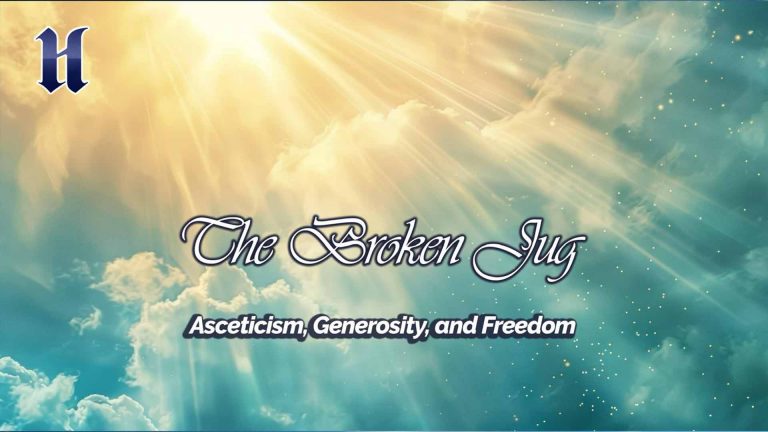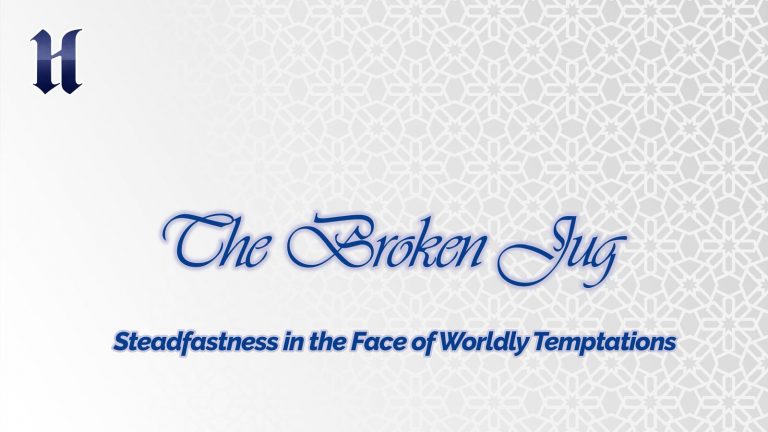Question: What are your recommendations for breaking the dullness wrought by familiarity in our supplications to God?
Answer: It is very important for a person to raise their hands in supplication with a consciousness of being in the Divine presence, to pronounce the words consciously, and to refrain from an attitude of engaging in worthless amusements.
The Messenger of God warned about the fact that supplications made in a heedless fashion are not acceptable in the sight of God Almighty by stating, “God does not respond to the supplication of a heart that is heedless and occupied by play.”1 In this respect, in order not to let dullness brought by familiarity take away supplication’s freshness and sweetness, and to not let the words coming out our mouth become worn-out utterances, it is necessary to know well the place and significance of prayer in religion.
Supplication: The Marrow of Worship
The Pride of Humanity, peace and blessings be upon him, states: “Supplication is the marrow of worship.”2 Just as the marrow in a backbone is of crucial vitality for the body, its possible dysfunctions can cause a person to become paralyzed and bedridden—and sometimes even to die. In the same way, supplication is like a backbone that makes the relation of servanthood between God and a person stand. It is only through supplication that a person reveals whether he or she is a real servant to God.
Supplication is what we call asking for God beyond the veil of causes. And this is very important in terms of attaining the consciousness of Divine unity in the real sense. Because when one raises their hands in supplication to God, there isn’t any cause between that person and God. Causes are nothing but a veil before the glory and greatness of God Almighty. However, a supplicating person directly knocks on the door of the One of Absolute Glory and Irresistible Might, asks from Him only, and thus begins to soar on the horizons of pure Divine unity.
A believer who supplicates to God fully conscious of being in His presence must take to be sure every word coming out of his mouth has a visa from the heart; he must make each word into a voice from the heart. In other words, he should not let a conflict happen between his heart and his tongue. Whatever the tongue is saying, the heart must contemplate the same meaning. For example, when one is saying, “My God please make me attain your good pleasure,” the rhythm of the heart must be in pace with these words and the heart must begin to beat accordingly. If there is some contradiction between the two, if the heart says something else while the tongue is saying something, then the matter of which one is to be answered remains uncertain. In this respect, a person must avoid acting with dualism and not let the tongue and heart contradict each other.
A person must act conscientiously not only during supplication but also during other acts of worship, too. For example, a person standing in prayer must enter inside that deed with his intention—the true will of the heart—and render that worship a deed of the heart as much as possible. The deeds offered by a person bear a meaning in the sight of God in accordance with how much the conviction and certainty in the person’s heart is expressed.
Faith and Supplication
Actually, such depth of consciousness depends on having sound belief in God in the first place, as is the case with every other matter. The depth and quality of a person’s supplication is directly proportional to that person’s faith. As for one who has a problem with believing and who lacks certainty, such a person can never maintain the integrity of their heart and tongue. In this respect, we can say that if a person cannot say the words from the bottom of his heart and cannot experience the excitement of supplication in a heartfelt way, then there is a problem of faith, certainty, and knowledge of God. Moreover, if a person does not care about whirlpools of unbelief, does not feel any disturbance in the face of people’s deviation and rebellion, and does not wish for them to embrace faith to the degree of wishing to raise a home or having a child at least—if that person is not raising his hands in supplication to say, “My God, please open the hearts of all people on earth toward Islam! Here I beg at your door O Lord! Take my soul if necessary, but put faith in people’s hearts please!”—we can say that this person is experiencing a problem of faith. Such a person needs a serious rehabilitation about the essentials of faith.
Actually, all of us need a serious rehabilitation about the essentials of faith. Because, no matter whether we realize it or not, as Bediüzzaman puts it, deviation and unbelief that stem from the science and philosophy of our time is seriously corrupting our minds.3 Each sin that we commit and every doubt that enters our mind is inflicting wounds in our heart and spirit.4 As sound faith based on verification has completely disappeared, the ties of imitation have also been undone. In the past, people would see a guide before them, or an opinion leader, follow his lead, and get inside the safe haven of faith by imitation at least; they would find protection. Unfortunately, most people in our time are lacking even such an opportunity.
Actually, if a person listens to oneself, looks at the face of what is taking place around them and then interprets these events correctly, then he or she will feel or sense Him in everything and say, like the poet Cenab Şehabeddin, “You exist O God! You exist, and You exist again! I find You in my mind, imagination, and feelings… You exist!” A person who beholds His Beauty reflected in everything will sometimes run to a tree and kiss it, embrace the grass, touch his face to the earth like an insane person, and sometimes turn to the sun, which is like a condensed manifestation of the Divine Name, An-Nur. And such a person will have full consciousness of God’s omnipresence. They will behave as if seeing Him and act with an awareness of being seen by Him. Only a person who has attained such horizons of certainty in faith will overcome monotony and familiarity while raising hands in supplication, transcend causality, and implore God Almighty with a consciousness of being seen by Him.
The Voice of Inner Excitement and Resonance
It is very important to feel being in His presence, and being in submission to and in awe of Him, so that it is as if the supplicant were able to see God or at least know that He sees us. A person must turn to God with a profound concentration and become enraptured while praying and abandon himself. I personally met Tahiri Mutlu and Ahmed Feyzi, who were students of Bediüzzaman. They would voice their inner excitements while supplicating to God. They would virtually writhe and become enraptured. As a matter of fact, they were practicing the attitude they had learned from their teacher.
I would like to draw your attention to a fact that can be counted as an excuse for you once more. Unfortunately we did not see people who offered the prayers properly, who supplicated sincerely, and who turn to God wholeheartedly; neither in Sufi lodges, nor in madrasas, nor in mosques. We did not have guides to be our pioneers, to broaden our horizons in this respect, and to show us the bright face of the truth by pushing the door open. Each of us remained where we were—as ignorant ones. To express our miserable situation, some scholars, such as Qutb, would question whether we are truly Muslim. But in spite of everything, do not see attaining real faith as too hard a task and as something unattainable. You first have to turn to Him with suffering. Then you must “see what God Almighty does; whatever He does is goodness.” See how He opens such surprise doors for you.
Then come, and let us rise in the night so that the stiffness inside us will be eliminated, so that servanthood will bring us relief, and so that we can deepen in faith. Let us offer four units of prayer of need, and then say: “My God, I am asking from You to make me reach full consciousness of Your omnipresence. Neither being bestowed the ability to work wonders, saintly graces, neither this, nor that… I do not want anything else. My only wish is to deepen in my relations with You. I am asking for nothing else but becoming oblivious to anything else when I think of You and live as a person imbued with knowledge of You!” While saying that, let us take care that each word that comes out of our mouth bears the stamp of consciousness. Let us ask for this insistently from God at night. One night, two nights, three nights… let us rise and implore God like crazy.
I do not want to ask this with an attitude that implies I am criticizing you. I do not mean to ask, “Is there anyone among you who rose every night for a week for the sake of asking for knowledge of God, love of God, and zeal and enthusiasm on His path, then offered prayers of need?” I hold the opinion that the number of people to reply affirmatively to such a question would not be high. And this shows the importance we give to this issue. But it should not be forgotten that, “If a wisher is serious about that wish and shows the required endeavor, his or her wish will be fulfilled.”
Sometimes, I look at the state of the people in the Masjid al-Haram, Arafat, Muzdalifa, and Mina, and seek this consciousness in them from afar. I look to see whether there are some people who pray to God like crazy and overflow with excitement. If a thousand people there sincerely open their hands in supplication, and lofty considerations rise to God Almighty from a thousand mouths, it is not possible for such a prayer to be turned down. I can even say that my belief on this issue is thus: If some three million people that gather there raised their hands in supplication and said, “O God, please change this world,” the earth beneath their feet would suddenly shift and it would become a different world.
Alas! The Islamic world has never been as miserable and wretched as it is today; it has never been this disintegrated. But it seems that people cannot thoroughly feel how tragic these disasters and this state of misery are. If they did feel it, then they would strive to be saved from it, at least to the extent of supplicating sincerely. As people do not feel this suffering, they do not feel any disturbance by the waves of unbelief around them, either. Therefore, they do not feel a need to resort to a collective prayer.
Let me point out one last fact: Even if it is not possible to attain such a heartfelt suffering in an instant, a person must force himself and make a serious effort in this respect. As for praying in a manner that implies we do not care much about whether our wish will be granted or not, it is an expression of insolence and rudeness before God. However, one must virtually be like a beggar while praying, and say with one’s action, “Please grant O God! Take my soul if necessary but please accept my wishes.” A believer must always turn his gaze to high peaks and voice these wishes in a heartfelt fashion, so that God Almighty will respond with His graces. Because the degree of Divine response depends on the degree of the person’s turning to God; we will be blessed with the look of God in the same degree as we turn our looks to His door.
1. Al-Hakim, Al-Mustadrak, 1/670.
2. Sunan at-Tirmidhi, Da’awat, 2.
3. Nursi, Said, The Letters, New Jersey: The Light, 2007, p. 31.
4. Nursi, Said, The Gleams, New Jersey: Tughra, 2008, p. 12.
This text is the translation of “Gaflet ve Ülfete Yenik Düşmemiş Dua.”






